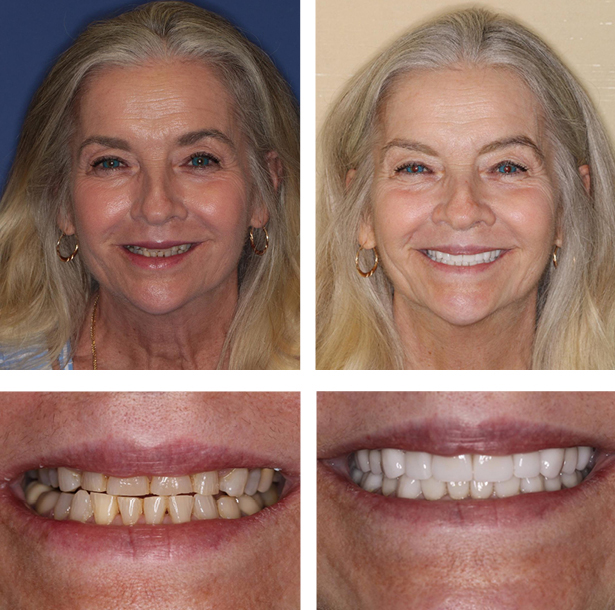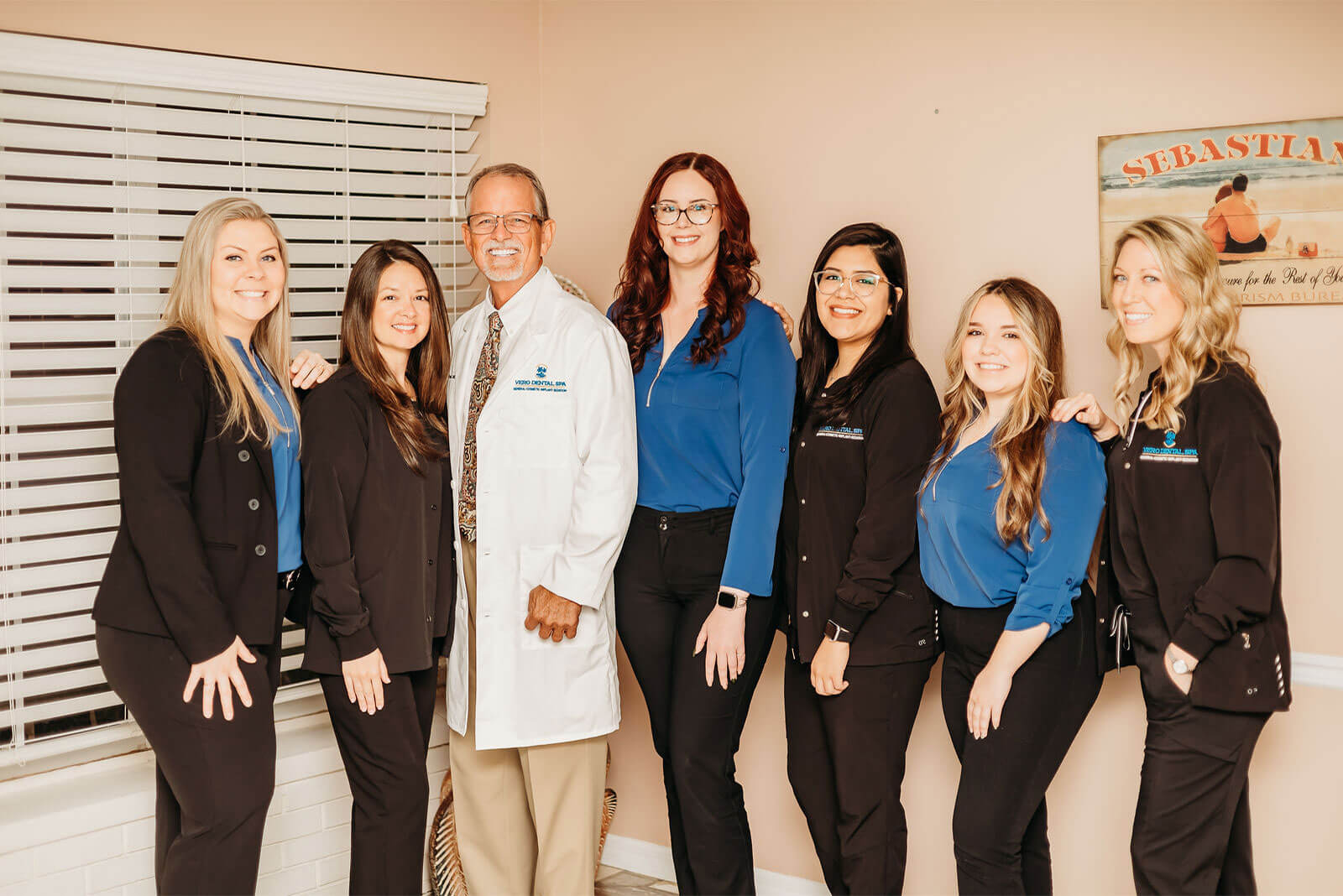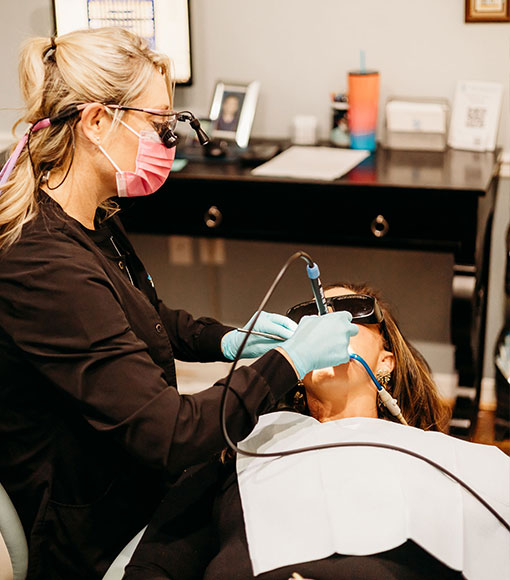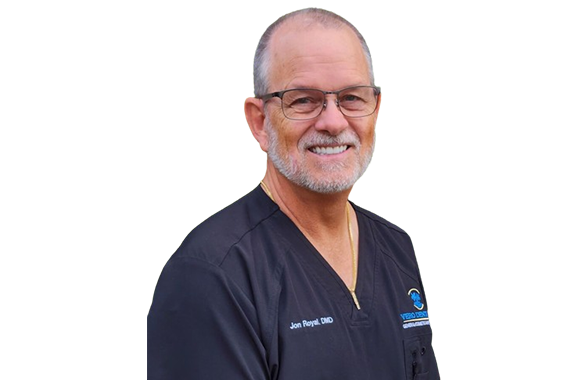Creating Healthy Smiles at Vero Dental Spa

At Vero Dental Spa, we understand that your smile is an essential part of your identity. If you’re struggling with missing teeth, damaged teeth, or any other dental issues, a full-mouth reconstruction can restore both the function and appearance of your teeth. Located in beautiful Vero Beach, FL, our experienced dental team offers personalized treatment to meet your unique needs.
Are you ready for a new smile? Contact our Vero Beach dental office today at (772) 778-5550 to schedule your consultation!
What Is Full-Mouth Reconstruction?
Full-mouth reconstruction, also known as full-mouth rehabilitation, is a comprehensive treatment plan that combines restorative and cosmetic procedures. The goal of this procedure is to restore the health, function, and aesthetic appeal of your smile. If you have multiple dental issues such as severe decay, missing teeth, worn-down enamel, or broken teeth, full-mouth reconstruction can address them all at once, helping you regain a healthy, beautiful smile.
This treatment plan is custom-designed for each patient and may involve procedures like dental implants, crowns, bridges, veneers, tooth-colored fillings, and other treatments, depending on the condition of your teeth and gums.
Why Do Patients Choose Full-Mouth Reconstruction?
Our Vero Beach dentist may recommend full-mouth reconstruction for various reasons, including:
- Fractured or damaged teeth as a result of an accident
- Lost teeth due to severe decay or trauma
- Significantly eroded teeth due to long-term problems with acid reflux or tooth grinding
- Persistent jaw, muscle, ear, and head pain which means that your bite needs to be adjusted
Why Choose Vero Dental Spa for Your Full-Mouth Reconstruction?
At Vero Dental Spa, we're committed to providing the best possible dental care to our patients. Here’s why we’re a trusted choice for full-mouth reconstruction in Vero Beach:
- Comprehensive Approach: We offer a personalized treatment plan that considers your specific needs and desires. Whether you’re looking for dental implants, dental crowns, or other restorative dentistry treatments, our dentist ensures that your treatment addresses all your dental concerns.
- Experienced Team: Our team of highly skilled dentists, hygienists, and dental specialists is dedicated to providing the highest standard of care. With years of experience in full-mouth reconstruction, you can trust us to deliver exceptional results.
- Comfort and Care: We understand that undergoing a major dental procedure can be overwhelming and cause anxiety. That’s why we prioritize patient comfort and ensure a stress-free, relaxing experience during every visit.
- Patient-Centered Philosophy: At Vero Dental Spa, you’re not just another patient. We take the time to listen to your concerns, explain your options, and guide you through the entire process. Your needs are our priority, and we aim to exceed your expectations.
Better your oral health! Contact our Vero Beach dentist today at (772) 778-5550.
What Procedures Are Needed in a Full-Mouth Restoration?

Every full-mouth reconstruction is different and based on the unique needs of each patient. So, not all the procedures listed here may be necessary or suitable for you. Typical procedures involved in a full-mouth reconstruction include:
- Bone or soft tissue grafting to create a firm foundation for your dental work
- Contouring of the gums to create a balanced appearance
- Crown lengthening to create a healthy structure for crowns or bridges
- Dental implant surgery
- Orthodontics to move your teeth into the correct place for reconstruction and correct problems with your bite
- Periodontal care
- Placement of temporary restorations while final versions are prepared
- Placement of the permanent reconstructive features, including dental crowns, dental bridges, porcelain veneers, and more
- Preparation of your natural teeth
- Teeth cleaning and aftercare treatments
Not all these procedures can be carried out at one time! The full-mouth reconstruction process can involve multiple visits over several months or even more than a year. To receive an estimate on full-mouth reconstruction cost, contact Vero Dental Spa today.
Frequently Asked Questions
How long does a full-mouth reconstruction take?
The length of time needed for full-mouth reconstruction depends on the complexity of your treatment plan. It could take several months to complete, especially if dental implants are involved, as these require a healing period before the final restoration is placed.
Will my insurance cover full-mouth reconstruction?
Many dental insurance plans provide coverage for certain aspects of full-mouth reconstruction, especially if it involves restorative treatments like crowns or dental implants. We recommend checking with your insurance provider to understand what is covered.
Consultations for Full-Mouth Reconstruction in Vero Beach, FL
Ready to transform your smile with full-mouth reconstruction? Contact Vero Dental Spa today at (772) 778-5550 to schedule your consultation and begin your smile makeover. Our compassionate team is here to guide you every step of the way, ensuring that your experience is as comfortable and stress-free as possible.
With cosmetic dentistry, gum disease treatment, general dentistry, and more, our dental team is here to help you better your oral health and the appearance of your smile.

Get Your Complimentary
Consultation or 2nd Opinion
- Exam
- Full mouth X-ray
- Private Consultation with Doctor ($350 value)
- 3036 20th St,
Vero Beach, FL 32960 - (772) 778-5550
Working hours
- Monday: 8am - 5pm
- Tuesday: 8am - 5pm
- Wednesday: 8am - 5pm
- Thursday: 8am - 5pm
- Friday: 8am - 1pm
- Saturday & Sunday: Closed
